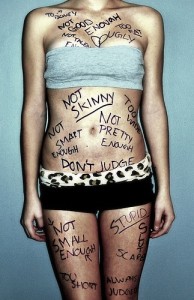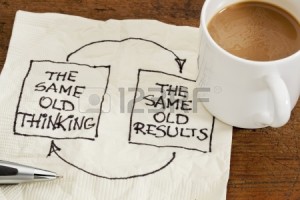Start fixing your dysfunctional relationship with food
If we are honest with ourselves, most, if not all, of us have a pretty dysfunctional relationship with food. We love it. We hate it. We break up with it, vowing never to see it again, and then we see it at a party and it looks so good.…all of the sudden you’re back together again. You tell yourself that this time will be different. But each time it ends, your self-esteem gets a little more fragile and you’re left wondering where you keep going wrong.
I know this sounds a little silly, but isn’t it also a little scary how true it is?!? WHY DO WE DO THIS?!

If you pay attention to the fitness world at all, you’d think nutrition came down to just what you eat, right? Diets, nutrition articles, and blogs are all about what food this celeb eats, what food that celeb swore off, which 5 foods to avoid for a flat tummy, the evils of sugar and french fries and soda, top 10 super foods….there’s even a whole series of books called Eat This, Not That.
The biggest problems with this are 1) trying to make something universal that is actually really individual, 2) chances are if you read more than one diet book or nutrition article, you’ll start hearing contradictory things about which foods are good and bad (which just gets really confusing and frustrating), and 3) because of some people’s strong convictions, it’s created a kind of morality based on what foods you do or don’t eat.
So without really realizing it, we start mentally assigning foods to the good or bad category. But the minute you put a food into the bad category it becomes forbidden fruit. The worse it is for you, the more you want it. The longer you deprive yourself of it, the stronger the cravings become and the more out of control you feel. Until you eventually give in. You binge. You feel terribly guilty. You make the next attempt even more strict in order to make up for it, and the cycle starts over. And now here we are, in this highly dysfunctional relationship that we just can’t seem to break free from.
So here’s the tough love part: it’s not food, it’s you. 😉
Let me explain by giving you 2 examples:
Guy #1: In a documentary called Supersize Me, gains 25 pounds and his health severely deteriorates while eating only McDonalds for 30 days.
Guy #2: Science teacher decides to do an experiment of his own and loses 56 pounds and improves all his blood markers eating only McDonalds….FOR 6 MONTHS.
WHAT THE WHAT?!?
It was the same “bad” food, so what made the difference? Well, Guy #1 decreased his exercise, had to say yes if they asked if he wanted his meal super-sized, and had to eat the entire meal. Guy #2 increased his exercise and had his students plan out his meals so that they always totaled 2,000 calories/day and hit a number of nutrient requirements as well.
The moral of the story: Food doesn’t make you gain weight. Behaviors do.
We’re going to get to the behavior later, but I’m starting here because this really has to do with our mindset towards food. What you think determines what you do.
Repairing our broken relationship with food will help with the behaviors to come. And it’s also SO friggin’ freeing!!! 🙂
I was at a nutrition seminar back in May and the speaker said something that really stuck with me. He said that he believes that the guilt we associate with food is far more detrimental than the food itself. He then asked how many of us had ever gone out to eat with a loved one and had a great time and enjoyed a decadent meal, but left feeling guilty because of what we ate. We all raised our hands.
It was eye-opening and saddening to realize how much shame and guilt I carried around because of food. How much we all do. Eating was given to us to be a pleasure with a purpose – to nourish our bodies. I see no other reason for taste buds. Somewhere along the way, though, it’s become more of a lose-lose situation for us.
Go to a party and eat something that’s not “on the plan” and you feel guilty.
Go to a family event and don’t indulge and you feel left out.
Give up, stuff your face with everything you want and then you feel miserable both physically and emotionally.
This false morality of “I’m good if I eat these foods and bad if I eat those foods” has done us no favors. In order for this relationship to work, we need to make peace with ALL food. And it starts with understanding and believing this truth:
Food is not the enemy. It is not good versus bad. You are not virtuous or sinful based on what you ate today. It has no actual power over you. It’s just food. Sure, there are foods that make your body feel better than others (and that is highly individual mind you). But it’s still… just food.![]()

Isn’t that a freeing thought?!?
Or are you more like me and thinking, “I can’t think this way or I’ll for sure just let myself go and live on Lucky Charms and pizza!” ? 🙂
This is where I’m going to ask you to trust the process. Start small by dropping the guilt and allowing yourself to just enjoy food again. In other words: Have the pizza. Enjoy the pizza. Move on with life. Have the salad. Enjoy the salad. Move on with life. Ate a little too much? OK. Noted. Moving on.
I think you’ll be surprised by how these things actually level out as you take away the good and bad categories. Over time, the urge to binge will fade because you’re no longer coming from a place of deprivation, but from a place of I can have this whenever I want.
More importantly, instead of making decisions based on what you think you should be eating, you can actually start choosing based on what your body is telling you. You do have a choice! Food is not in control. You are. There’s no better expert on you than your own body. Trust it!
“Experts agree that we were born with the ability to eat based on our body’s cues. But often, we train ourselves to ignore what our body is telling us because it doesn’t fall in line with what we feel like we “should” eat—or what others are telling us we should be eating.”
~Robin Hilmantel
(Excerpt from The Hunger Solution e-course)




